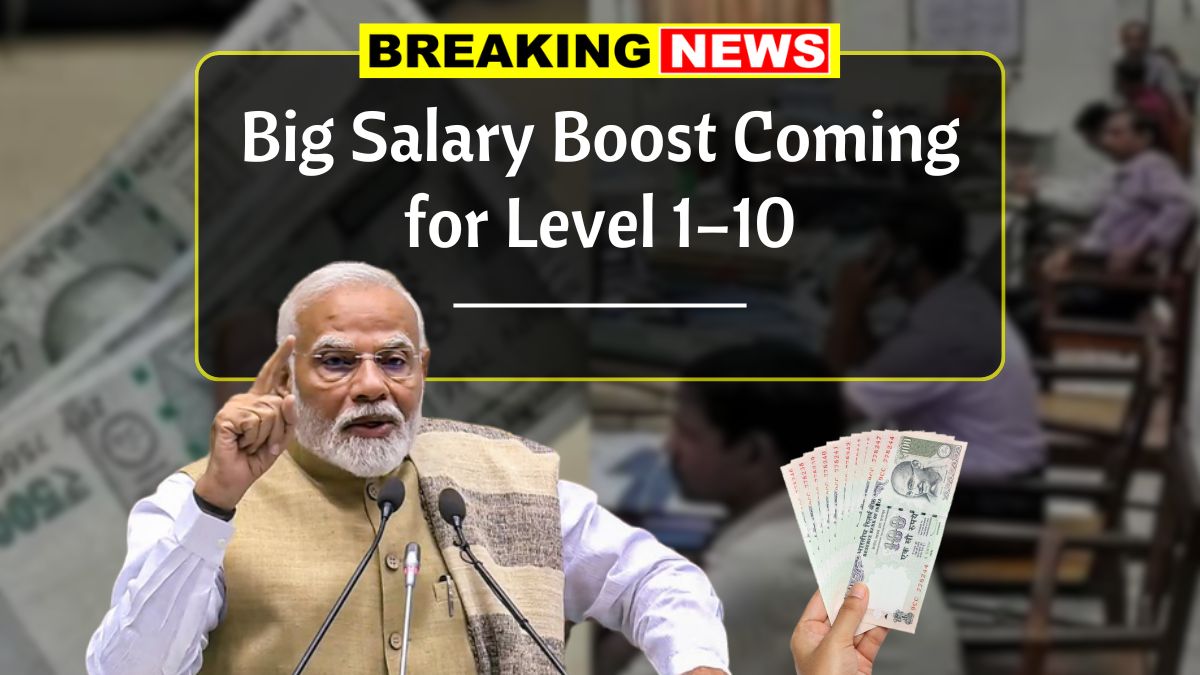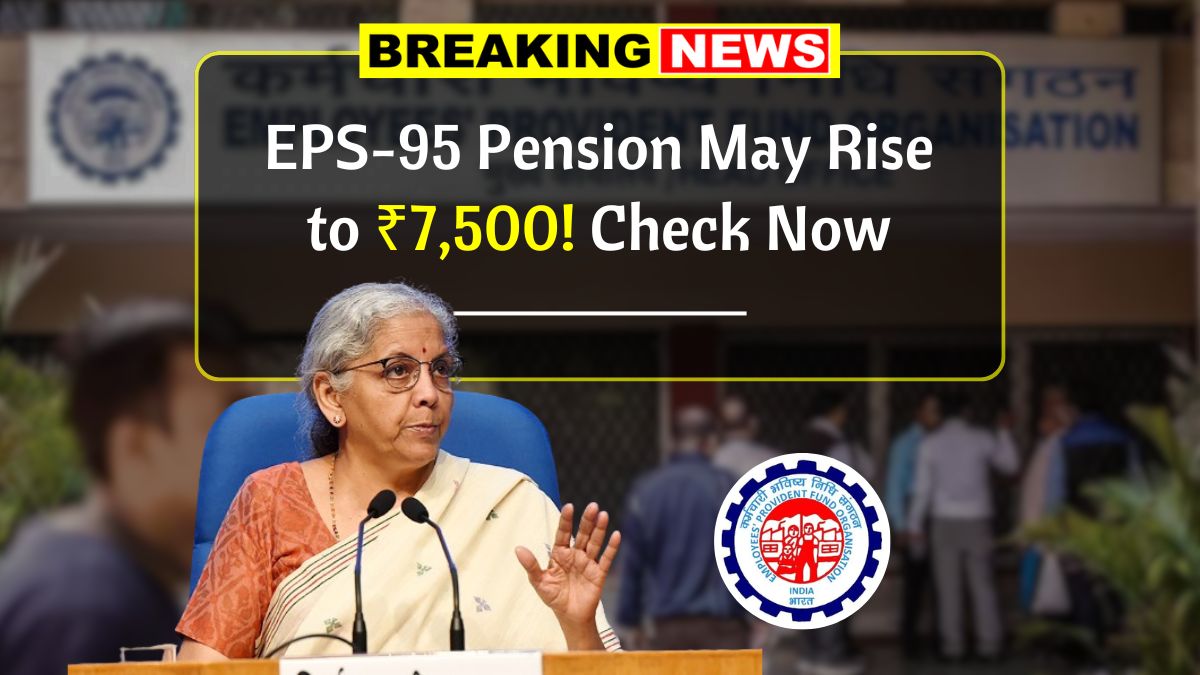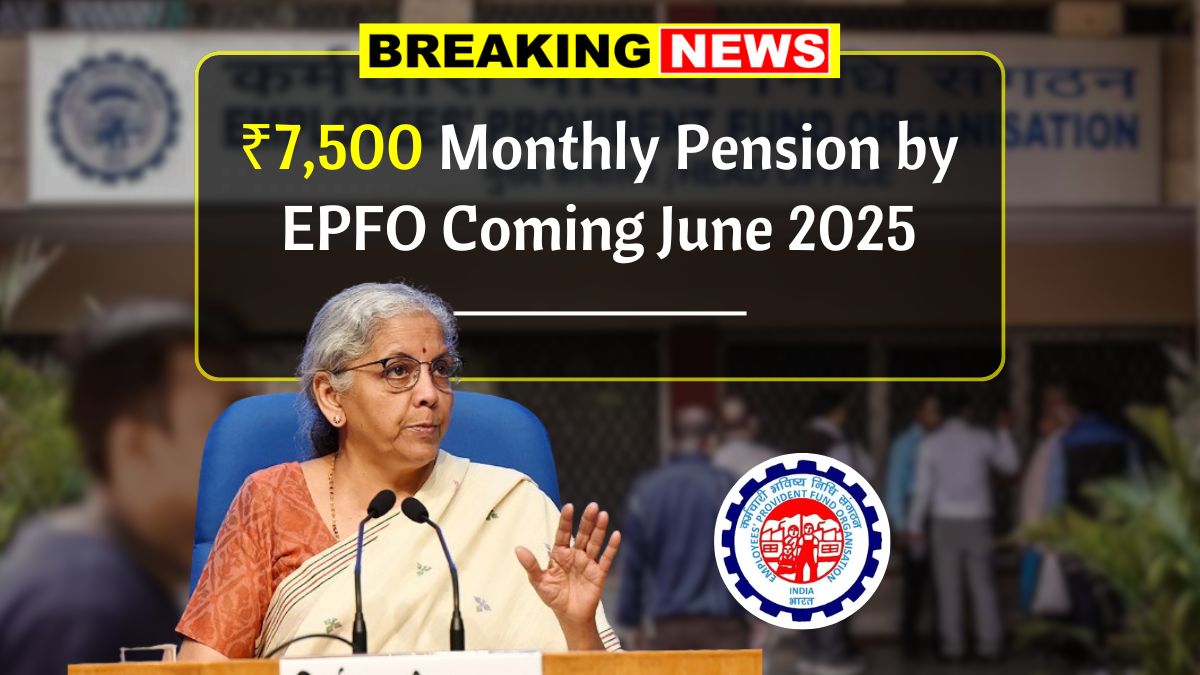8th Pay Commission Update – If you’re a government employee, especially in Level 1 to 10 positions, there’s a buzz you just can’t ignore right now—the 8th Pay Commission might soon become a reality. And if that happens, your salary is set to get a major upgrade. After years of inflation, rising living costs, and stagnant pay, this could finally be the relief you’ve been waiting for.
Let’s break down what this actually means and what you can expect if the government gives the green light.
Has the 8th Pay Commission Been Approved Yet?
As of now, no official notification has been released declaring the 8th Pay Commission as approved. But don’t lose hope—the discussion is very much on. Several reports and government insiders suggest that serious talks are happening behind closed doors. Experts believe the announcement may come either by the end of 2025 or early 2026, with a likely implementation date aligning with the start of the next financial year.
What Kind of Hike Can Employees Expect?
For Levels 1 to 10, the changes could be pretty substantial. Here’s what’s likely:
- Basic Pay Increase: Expected to rise by 30% or more, bringing relief to employees who have been struggling with inflation.
- Revised Pay Matrix: Much like what we saw in the 7th Pay Commission, a new matrix could simplify pay structure and make it more transparent.
- Allowances Adjusted for Inflation: Dearness Allowance (DA), House Rent Allowance (HRA), and Travel Allowance (TA) might all see enhancements.
- Better Pension Benefits: For those nearing retirement, a fatter pension cheque may be on the horizon.
Comparative Breakdown – What Could Change?
Here’s a rough comparison of current and proposed pay (based on estimates floating around):
| Level | Current Basic Pay | Expected Basic Pay |
|---|---|---|
| Level 1 | ₹18,000 | ₹23,400 |
| Level 5 | ₹29,200 | ₹37,960 |
| Level 10 | ₹56,100 | ₹72,930 |
That’s a big jump—and not just in base salary. Once you factor in HRA, DA, and other benefits, the total take-home pay will likely improve significantly.
Why Is This Important for Level 1 to 10 Staff?
These are the backbone of the government workforce—clerks, assistants, junior engineers, drivers, constables, teachers, and so on. They often struggle to make ends meet, especially in urban areas where rents and daily expenses are sky-high. A raise in pay can:
- Help manage household expenses better.
- Reduce financial stress.
- Improve savings and investments.
- Boost morale and work productivity.
In short, it’s not just a pay revision—it’s a lifestyle change for lakhs of government workers and their families.
When Could the Pay Commission Actually Be Implemented?
Here’s the tentative timeline being discussed in various circles:
- Announcement Expected: Late 2025 or early 2026.
- Recommendations Finalized: Mid-2026.
- Implementation: Possibly from 1st January 2027, with arrears applicable.
However, if political will is strong and pressure from employee unions grows, the timeline could get advanced.
Key Steps in the Process
- Formation of Commission – Government officially sets up the 8th Pay Commission.
- Data Collection – Inputs taken from employee associations, departments, and economists.
- Draft Report – Preliminary recommendations laid out.
- Final Report – After feedback and adjustments.
- Cabinet Approval – Government signs off on recommendations.
- Implementation – New pay structure is rolled out.
Employee Unions Are Watching Closely
Many government employee unions are actively lobbying for faster implementation, citing rising living costs and stagnating pay. They’ve already sent multiple memorandums to the finance ministry and are planning to intensify their push if no official word comes soon.
What Happens If It’s Delayed?
Well, disappointment for starters. Employees may have to continue with existing pay scales even as inflation rises. Morale may dip, and unions might go on protest or strike—something the government surely wants to avoid, especially with elections in sight.
The 8th Pay Commission could be the most significant financial update for government employees in nearly a decade. While nothing is confirmed yet, all signs point toward a favorable outcome.
So if you’re a Level 1 to 10 staff member in any central or state department, stay hopeful and stay informed. Big things might just be around the corner!














